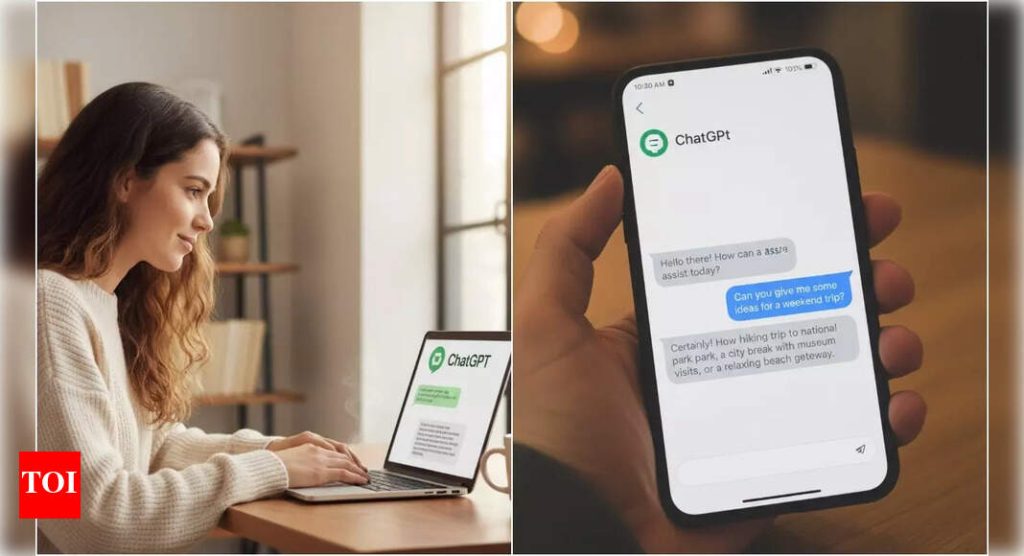AI is no longer just a tool — for many, it has become a steady companion. Like a friendly cheerleader, it listens without judgement, and offers comfort. “Loneliness and boredom brought me to ChatGPT,” says a 24-year-old Gen Z user from Rajasthan, who often relies on it for emotional support and decision-making.Today, this Gen Z user is one of many who use ChatGPT on a daily basis. According to data shared by OpenAI, the platform has over 700 million weekly users. OpenAI recently published its first in-depth study on how people use ChatGPT and what they discuss with it, analysing chat records from 1.5 million users between May 2024 and June 2025.Findings of the study reveal– ChatGPT is being used more in daily life than in the workplace.– The largest category of chats, at 28.3%, was practical guidance, covering how-to advice, schoolwork help and fitness tips. Writing support was second, at 25.6%, mainly editing and critiquing text, followed by personal writing tasks such as drafting emails or social media posts. The third most common use of ChatGPT, according to the study, was seeking information, which researchers noted works much like a substitute for web search.– Very few users use ChatGPT for “games, role play, or AI girlfriend” interactions — only 0.4% of chats.Using ChatGPT for personal advice or as an AI girlfriend?A Reddit user shared that during the final stage of their PhD corrections, they felt overwhelmed and humiliated when seeking support from their parents. In frustration and desperation, they turned to ChatGPT, saying, “In one sentence, I felt more emotionally supported by a ‘stupid AI’ than I ever have by my parents,” highlighting the surprising emotional role of AI.In another case, a Reddit user said they use ChatGPT several times a week for everything from random questions to recipes, but especially for emotional support. “It’s a place to vent, get feelings validated, and work through situations,” they explained.Many people find it helpful to discuss their personal lives with ChatGPT. The study released stated that 1.9% of conversations involved asking for advice on relationships and feelings. According to a Washington Post article, OpenAI researchers described this use as “fairly small,” contrasting it with other research suggesting therapy is one of the main uses of generative AI chatbots.Women lead ChatGPT useOpenAI’s research shows that most ChatGPT users today are women, and most conversations are not work-related.Young people dominate the platform, with nearly half of all chats coming from those aged 18 to 25. Back when ChatGPT first took off in late 2022 and early 2023, around 80% of users had ‘typically masculine’ first names. By June 2025, this trend had reversed, with 52% of users having feminine names.


